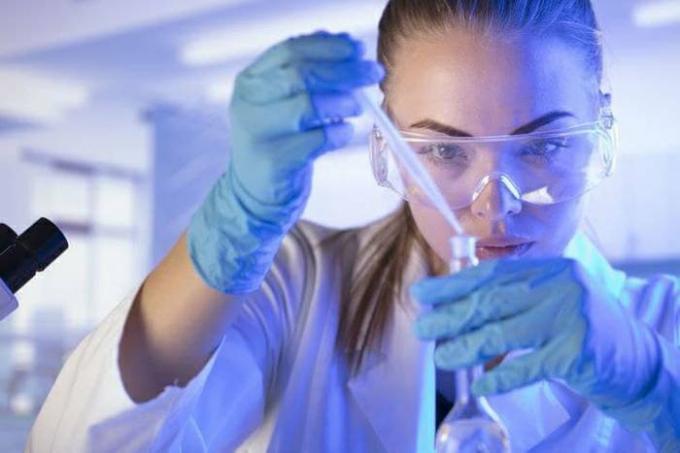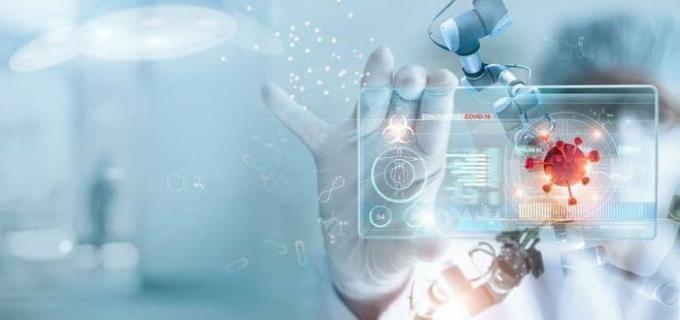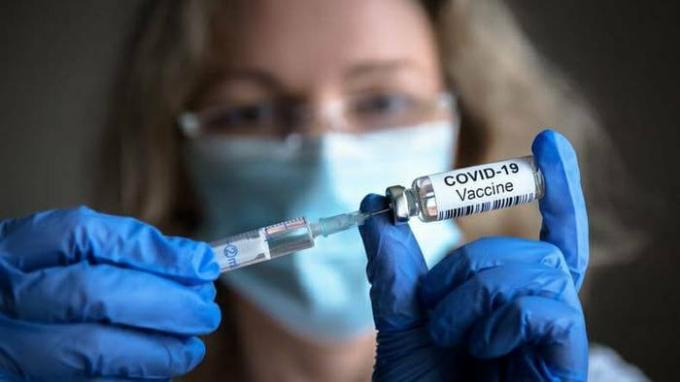Often, the amount of antibodies affects the decision of people to get the coronavirus vaccine or not. Scientist Alexander Kolyada explained why it is not necessary to check the level of antibodies to covid-19
"I have an antibody level of 140, and I will not be vaccinated", "I had 600 after the illness, and after the vaccine 40, then the vaccine is bad" I got sick a year ago and I have a level of 1600, I have such a cool and strong immunity "- such phrases can often be heard or seen in the feed social network. Ukrainians are measuring their level of antibodies to coronavirus with might and main. Alexander Kolyada, a researcher at the Epigenetics Laboratory of the NAMSU, is sure that they cannot show how strong you really have a defense against coronavirus. There are two reasons for this.

Ukrainians began to measure their level of antibodies to coronavirus / istockphoto.com
The first reason why you do not need to check the level of antibodies is laboratory
According to Alexander Kolyada, tests are qualitative and quantitative. The first show whether there are antibodies or not. The second is how many of them are in a certain volume of your blood.
“Last year, for example, in Ukraine there were only high-quality tests. Now there are both types, and each of them gives you some kind of number. If you ordered a simple antibody test in the laboratory without specifying, then with a high probability you were given a high-quality test. In a quality test, a number is also written, but this figure does not speak about the amount of antibodies, but only about a certain technical indicator that the device produces ”,- explains the expert.
The fact is that the blood is sent to a laboratory, where it will be analyzed not under a microscope, but in special devices. To do this, a drop of blood is dropped into a test tube where there is a piece of the virus, and if your blood contains antibodies to it, they will stick to it and, with the help of a little magic, begin to glow. Here is the level of this glow and they indicate to you in the conclusion to the quality test. Most often, this level will be measured in OU / ml or optical units / ml, this is written in the help.
The level of fluorescence somehow correlates with the number of your antibodies in the body, but few people know how. 100 from 200 may differ 2 times, and maybe 10 times, the dependence is not always linear. The number in the conclusion in these tests is not for you, but for the lab staff.
“Therefore, everything that you measured with high-quality tests, or measured in the past year - all this can be reduced to the answer“ there are ”or“ no antibodies ”, and nothing more,”- says Alexander Kolyada.
Quantitative tests have been around for quite some time now, and are more complex and slightly more expensive, using dedicated concentration controls. There 100 differs from 200 really 2 times, and the concentration will be indicated in MO / ml or IU / ml, which will be written in your certificates.
But they also cannot always be compared. The fact is that different laboratories use different equipment and reagents, and even the same laboratory can change reagents during its operation. As a result, the magnitude and units will also differ. 40 IU / ml in one laboratory can be 467 IU / ml in another and 3.2 IU / ml in a third.
"And you will not be able to compare your precious immunity from covid with your neighbor's, and even with your six months ago,"- says Alexander Kolyada.

In Ukraine, there are qualitative and quantitative tests for testing antibodies / istockphoto.com
Only in December last year, according to the expert, WHO standards 20/136 and 20/268 appeared, which can level all these levels between laboratories, and bring them to a single value - binding antibody units (BAU). In good laboratories, it will really be possible to compare it in dynamics at home, and even among different people.
"But I have not seen a single laboratory in Ukraine who issues results to BAU",- says Alexander Kolyada.
The second reason is biological
The problem is that the tests do not show the "level of immunity," says Alexander Kolyada:
"The level of immunity does not show anything at all, as does the level of the weather."
The coolest thing that can be learned about immunity from well-studied viruses, according to Kolyada, is what time times and when a person who has been ill is less likely to get sick, in comparison with someone who does not have immunity to the virus generally.
"The likelihood of contracting coronavirus depends not only on the level of antibodies, which is not so easy to measure, as you understand. And also on the level of T-cell immunity (which is even more difficult to measure in Ukraine, but it is already possible) and genetic susceptibility to the virus. And also on the situation around the body - air temperature, the number of viral particles, time spent in contact with the carrier, virus strains, etc.", - says the expert.
But back to the antibody tests. Not all of your antibodies to the virus can fight the infection, but only those that are neutralizing. Antibodies work like plasticine, gluing the places of the virus that attach it to the cell. Those antibodies that can glue it so that it does not penetrate into the cell neutralize and render harmless. But there is still a sick part of the antibodies to the virus in your blood, which stick to the virus, but do not greatly interfere with it.

Tests do not show the level of immunity to coronavirus / istockphoto.com
How many neutralizing antibodies you have, and how many simply binding antibodies, you will not know. There are special tests for this, but they are done only by very serious scientific laboratories and for this they need to work with a live virus, which is very difficult, expensive and time-consuming.
Moreover, the question of old antibodies to new strains remains open. To answer the question of your likelihood of getting sick, you need to know all the strains of the virus in your area, and how your antibodies from the past strain will work on them. Delta, for example, is the one that escapes the antibodies that have effectively neutralized the Wuhan strain of the virus.
But even imagine that we were able to calculate the level of antibodies, found out that among them there are enough neutralizing the virus, we were able to express them in unified BAU units, in order to compare them with other laboratories, recalculated for some coefficient for effectiveness against all other strains that we plan to infect, this also does not help answer the question “do you have immunity". Because we do not know the minimum protective level of antibodies.
“The fact is that with a virus like in a war, the winner in most cases is the one who outnumbers the enemy. The virus attacks us in a pretty uniform way. And he starts the attack with several of his combat units, thrown into the rear of the enemy. The airway-covered cashier who will not wear a mask and will not be vaccinated because she received 5 medical educations, watching Russian YouTube, and knows best of all that the virus is safe, and in vaccines chips ",- explains the expert.
Troopers of the virus multiply in our body and at some point are attacked by the antibodies that we have. To defeat viruses, we need to have enough antibodies. How many antibodies are sufficient to resist the virus - we do not yet know.
WHO is only considering several options, which can be taken as a sufficient minimum, so this will be decided in the near future.
For immunity after vaccines, for example, there is such a thing as a correlate of protection. This is some kind of indicator (most often the same antibodies), the level of which indicates that a person is protected by 50 or 100%. It is used to compare different vaccines or the effectiveness of vaccines in a new epidemic. Such a correlate for covid vaccines is still being calculated; a lot of people are needed here.
It is definitely necessary to be vaccinated, but we still do not know how to make a decision to postpone the re-vaccination based on the level of antibodies after the first one. All international organizations insist that the decision on vaccination and revaccination should be take not based on the level of antibodies, but based on the time after the first vaccination or transferred disease.
Key findings
- Not every test and not every laboratory gives a result on the amount of antibodies to the virus, even there are some numbers in your certificate.
- The amount of antibodies to the virus does not fully reflect the level of the body's defense against the virus.
- We still don't know what the minimum amount of antibodies is to protect against the virus.
- The decision to vaccinate should be made based on the timing of the illness or previous vaccination, not the level of antibodies.

The virologist believes that the vaccine is needed only for those who have had mild covid / istockphoto.com
Alternative opinion
Academician, virologist Vladimir Shirobokov believes that it is possible to understand how strong your immunity to coronavirus is without any tests.
"The harder a person is sick with coronavirus, the stronger his immunity has developed,"- says the expert. Therefore, in his opinion, those who were sick in a mild form, vaccination against coronavirus is necessary. But for those who were seriously ill, it is possible not to do it. They have their own powerful defenses.


